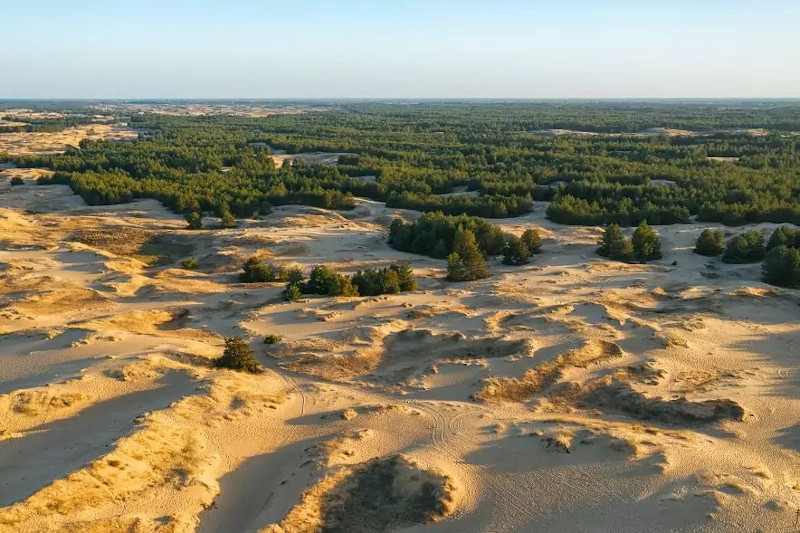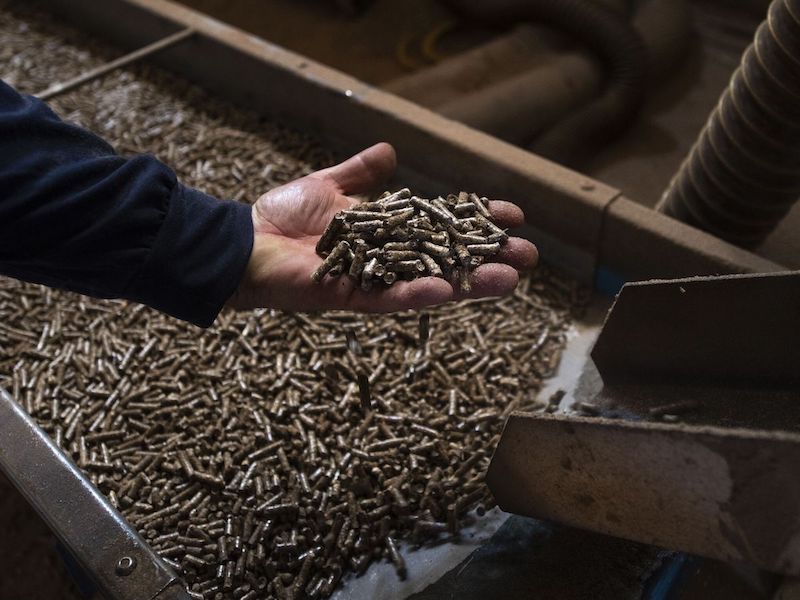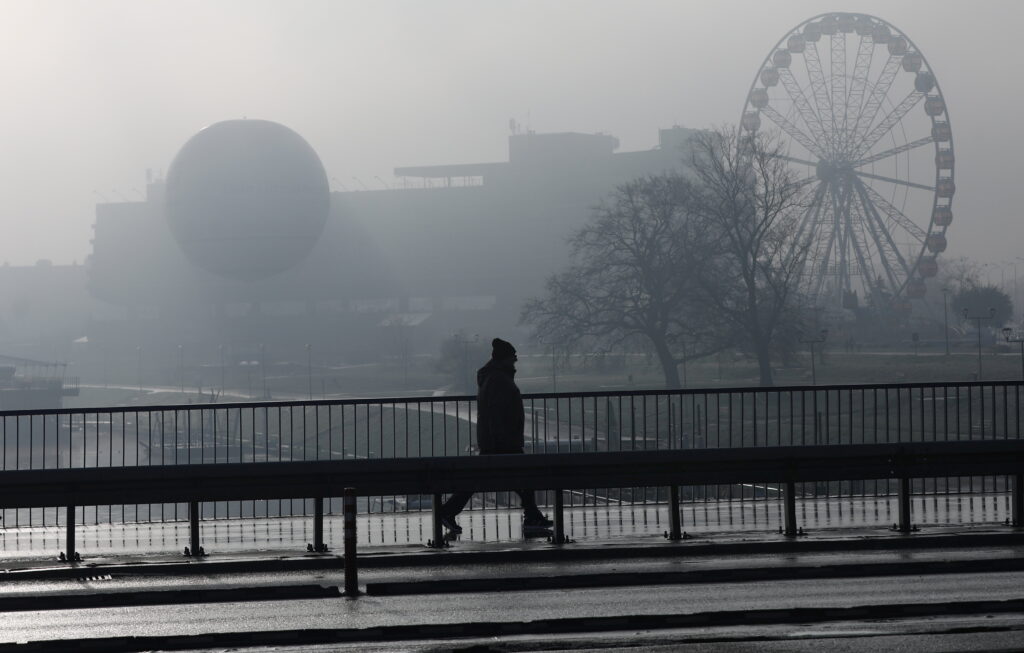Hi from Paris,
In Moldova, where I was reporting from a couple of weeks ago, many households have given up gas, which has become too expensive, and returned to old wood stoves. In turn, firewood has become so expensive that pensioners live in the cold and only allow themselves one fire a day. In Ukraine’s liberated territories people are even risking their lives to collect and chop wood.
In France, where I live, most of my friends who moved to the countryside have chosen to heat their houses with pellet stoves. They thought they had found an economical and eco-friendly solution. But this year, demand is so high that the bags of pellets have almost disappeared from the shelves. Once imported from Russia and Ukraine, many of our pellets now come from Spain.
From one end of Europe to the other, we are trying to break our energy dependencies on Russia. We also must find solutions that are less harmful to the climate. Encouraging the cutting down of trees is probably not the wisest decision, as we need forests to fulfil their role as carbon sinks.
Nelly Didelot, this week’s Editor-in-Chief

When I was a child, collecting firewood was often intertwined with danger. I grew up in a village near the Oleshky sands ― a natural desert near Kherson. Legend has it that some centuries ago there were meadows there, but the horses and sheep of the invading Crimean Tatars ate up all the grass.
In Soviet times, after the Second World War, pine forests were planted there. Schoolchildren put the seeds in straight rows, so from above these forests looked like combed hair. Still, the heart of the area was mostly treeless ― and the Soviet army decided to take advantage of it.
Thousands of bombs were dropped there, as the military tested their power. Some were equipped with parachutes, so many people from nearby villages now have a chute in their household, which is a handy cloth to clean freshly-picked vegetables before taking them to the market. To collect firewood, the locals went into this forest-desert, sometimes blowing themselves up on unexploded bombs.
In this century, though, the place was a rather safe tourist attraction. Spending a night there, I never saw more stars in the sky.
Last year, the Russians came there. They chopped many trees for the trenches and used the desert as a training ground. The place became dangerous again.
The same happened to many other forests in the occupied areas of Ukraine. The Russian army laid down weapons there, dug trenches or buried victims. During their retreat, they heavily mined everything. If you go into the woods around Izyum, Bucha, or Lyman, you never know if you’ll come back.
By horrible coincidence, infrastructure in these settlements is often destroyed. State and private initiatives for heating don’t cover everyone’s needs, so many locals can only warm their homes by cutting down trees, even if there may be the danger of explosives or fines for illegal logging. “Freezing temperatures scare me more than these [threats],” one logger from Izyum told the media.
Invaders turn many places in Ukraine to deserts, again. Our only hope is that one day life will return there.

Soaring energy prices have turned firewood into a precious commodity in Hungary. To manage this crisis, the government continued its trend of putting a price cap, this time on firewood. Households could buy 10m3 at a subsidised price of 30 to 76 Euro – roughly enough to heat an average family home during winter.
But when prices are cheaper, demand is higher. The state forestry companies ran out of logs for sale, while private sellers tripled their prices. The government came up with a solution: easing regulations to cut down the nation’s forests.
Thousands protested, forcing the ministry to backtrack and prove that even in times of emergency, the environment always comes first.

When one door closes for someone, a window opens for someone else. That’s the case with Spanish wood pellets, which boomed in exports in 2022. This biofuel made from pressed wood is such a hot export product that locals now refer to the pellets as ‘brown gold’.
The increasing use of biomass in Europe, which accounts for up to 60% of all energy produced from renewable sources and the Russian invasion of Ukraine have turned the European energy market upside down, and Spain is seizing its opportunity.
Russia was the main supplier of wood pellets to the ‘old continent’. Now, with the embargo imposed on both Moscow and Minsk, some European importers like Italy and the United Kingdom are struggling to find supplies of this precious substance.
Spain is now filling the gap in the market.
Thanks to EU regulations facilitating exports, Spanish wood pellets sold to Italy increased by 67.1% last year. 11,593 tonnes were also sent to the UK. The Iberian country was already providing wood pellets to London before Brexit, with a peak in 2017.
After the UK left the EU in 2020, Britain started buying Russian pellets and Spanish numbers dropped to less than a third. With the general trend to move away from Russian energy sources, British consumers have switched back to importing the biofuel from Spain, with sales up 15.1% in 2022 compared to 2021.
But the golden egg for Spanish wood pellet sellers is France, since its government decided in 2018 to promote biomass, mainly for heating. The results have been especially noticeable last year, when exports increased by 148.9%. With more and more French households opting for this alternative, it is unlikely that Spanish wood pellets will fall out of favour, even after the war ends.

“You have to burn with everything at the moment, except of course tyres, or things like that. Poland has to be warmed up.”
This is what Jarosław Kaczyński, leader of the ruling Law and Justice Party, said last September, after the EU embargo on Russian coal entered into force. Since then, the price of firewood has doubled in the country, where 28.8% of households heat with wood.
A 34-year-old resident of northern Poland took Kaczyński’s words to heart. When a municipal police patrol knocked on his door to penalise him for burning unauthorised materials, the man claimed that Kaczyński had publicly allowed him to do so, and refused to pay a fine of 500 Zloty (about 105 euros).
The case will end up in court, which will probably pass a guilty verdict: The words of the Law and Justice chairman have no legal value.

Markus von Willert is the editor of waldhilfe.de, an advisory website for private forest owners. He has also worked as a forest & sustainability expert for the Federal Association of German sawmill and timber industry (DeSH).
What are the challenges for forest management in the face of climate change?
The transforming conditions are mainly noticeable in changed rainfall, drought and heat. All this leads to stress and the weakening of the trees, which then allows bugs to invade the trees more easily. An example of this is the European spruce bark beetle, which has attacked huge stands in Germany in recent years. As a result, the forests are collapsing. So far, the focus has only been on softwood. Where they grow in man-made monocultures and at higher altitudes, they are very unstable. We knew that already. But now we are also seeing a weakening of forests where we would never have expected. Even near-natural beech forests are suffering from climate change.
How do we need to transform the forests so that we can continue to harvest wood in the future?
We need to find a way to still gain wood from trees, because we will urgently need them in the next decades, for example in buildings. On the other hand, we need to think about how to make them more resilient: Less vulnerable to stress from drought, heat and bugs. This will not happen quickly, however, because the choices we make for forests today will have to last for up to two hundred years.
What do you recommend?
Risk diversification makes the most sense: it is recommended to mix different tree species and also to include foreign tree species in the mix. However, this often clashes with conservationists, who classically only want native tree species in the forest. But our climate will no longer be “natural” anyway. Mediterranean tree species or those from North America may have a much better potential to cope with the climate in a hundred or two hundred years’ time.
Thanks for reading the 16th edition of European Focus,
The consequences of the war in Ukraine are countless. They invade our daily lives, our food, our heating, even at the other end of the continent where we still live in comfortable safety. Will they be enough to make us aware of the imperative need to support Ukraine in the fight against the Russian invasion, using all possible means, including heavy weapons?
See you next Wednesday!
Nelly Didelot







